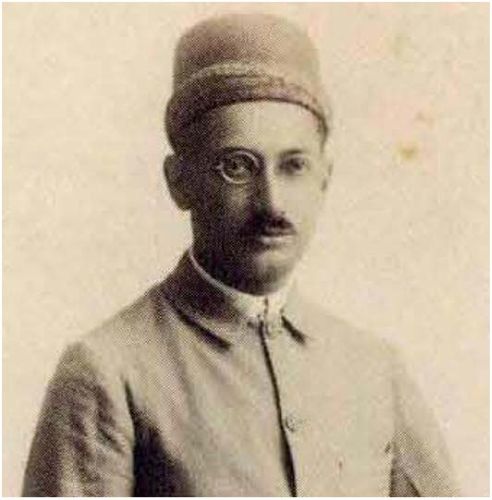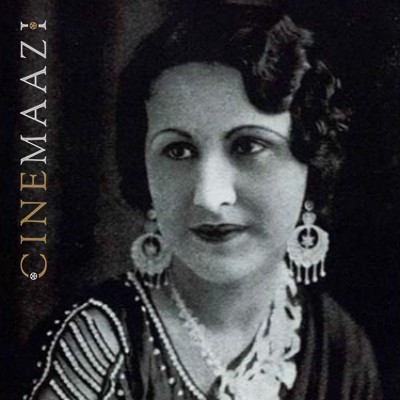Jamshedji Jehangirji Madan (J J Madan)

Subscribe to read full article
This section is for paid subscribers only. Our subscription is only $37/- for one full year.
You get unlimited access to all paid section and features on the website with this subscription.
Not ready for a full subscription?
You can access this article for $2 , and have it saved to your account for one year.
- Born: 1896
- Primary Cinema: Hindi
Theatre business owner, film director, and actor, Jamahedji Jehangirji Madan (J J Madan) was the third son of Indian film magnate Jamshedji Framji Madan who started Madan Theatres Ltd in 1919. He took over the management of Madan Theatres after his father’s demise in 1923, becoming the managing director. Madan Theatres reached a peak in the late 1920s when it owned 127 theatres and controlled half of the country's box office. In 1927, Madan Theatres employed roughly 2,500 individuals. Helming Madan Theatres, he also oversaw several advancements including introducing the first soda fountains to India in 1927; travelling to New York to discuss with Universal on buying the firm; securing record-breaking collections for the Hollywood film Ben Hur in 1927 and claiming exclusive rights for India, Burma and Celyon; developing Elphinstone Picture Palace in Calcutta as the first Asian cinema with permanent sound facilities; exhibiting the first talkie in India – Universal’s Melody of Love in 1929 at the Elphinstone Picture Palace in Calcutta; leasing Bombay’s Royal Opera House in 1929; and producing the first Bengali cinema talkie film Jamai Shashthi in 1931. Madan Theatres produced a number of popular and landmark films until 1937. He is known for films such as Rajkumari Badar (1922), Shirin Farhad (1931) and Indrasabha (1932). As a director, he has more than 25 films to his credit. The Indian-American actor Erick Avari is his great-grandson.
Madan debuted as a writer in 1922 with Rajkumari Badar for which he penned the story and screenplay. Also known as Kamar-al-Zaman, the film was produced by his father J F Madan’s Madan Theatres, and starred Edna Dalies, Eugenio de Liguoro, and Patience Cooper, among others.
The same year, in 1922 itself, he directed multiple films for Madan Theatres. These included Nartaki Tara/ Tara The Dancer (1922), starring Chanda, Prabodh Chandra Bose and Patience Cooper; and Princess Budur (1922) starring Edna Dalies and E D Liguoro. His directorial Pati Bhakti (1922) was a social genre film which advocated that women should be devoted to their husbands. Leelavati (Patience Cooper) was the protagonist. The censors demanded that an 'obscene' dance sequence be removed and the film was later re-censored on 16 November 1923.
In 1923, he directed the historical drama Nurjehan. A biographical, it starred Patience Cooper in the title role, Albertina, Charles Creed as Sher Afghan and Manchersha Chapghar as Jehangir.
Patni Pratap, his drama film of 1924, saw him direct Patience Cooper in a double role, playing twin sisters. Sati Savitri, his directorial of 1924, was an Indo-Italian co-production by Madan Theatres and UC Italiana of Rome, starring Rina de Liguoro and Angelo Ferrari. Toorkey Hoor (1924) saw him direct Master Mohan, Manilal, Shanker Narmada and Patience Cooper in this costume drama written by Aga Hashr Kashmiri.
In 1925, he directed the romantic drama Adooray Chheley starring Patience Cooper, Suraj Ram and Miss Sarifa.
In 1927, he appeared onscreen in a leading role in the Imperial Film Company’s Allah Ka Pyara (1927) directed by Krishna Parshuram Bhave and starring alongside Zebunnisa.
After a break of more than five years, he returned to direction with the Hindi language film Laila Majnu in 1931. It starred Khurshid Begum and Nissar. The same year, he directed Satyawadi Raja Harishchandra starring Jehanara Kajjan, Nawab and Sharifa. He also directed Shirin Farhad (1931), a big-budget musical narrating a legend from the Shanama. It revolved around a Persian sculptor Farhad who falls in love with Queen Shirin. The Shah Khusro, who had promised Farhad a reward for having built a canal, agrees to let him marry Shirin provided he first single-handedly demolishes the Besutun mountain. Shirin and Farhad are finally united in death as Farhad's tomb miraculously opens to accept his beloved Shirin. The film starred Nissar, Jehanara Kajjan and Mohammed Hussain.
Alibaba Aur Chalis Chor (1932) saw him direct this popular Arabian Nights folktale, followed by Chatra Bakavali (1932) starring Khurshid Begum, Mukhtar Begum, Patience Cooper, Abdul Rehman Kabuli, Jehanara Kajjan and Nissar. It was followed by Gulru Zarina (1932), Hathili Dulhan (1932) and Muflis Ashaq (1932). The musical romance Indrasabha, which he also directed the same year, was a big-budget film with over 69 songs. Written by Syed Aga Hassan Amanat, its plot structure combined the Hindi Devmala (pantheon) with the Islamic Ravaiyat in a story revolving around a benevolent king whose moral fibre is tested by celestial powers as they cause an apsara (a fairy) to appear before him as a fallen woman begging for mercy.
The year 1933 saw the release of his directorial Aankh Ka Nasha, starring Khurshid Begum, Mukhtar Begum, Jehanara Kajjan, Rajkumari, and Suraj Ram. The film was based on an Urdu play by Agha Hashar Kashmiri. It dealt with themes of treachery and the evils of prostitution. This sound film was remade from Madan Theatres’ 1928 silent film. The same year, he directed Shakuntala (1933), based on the popular play by Kalidas, and produced by Cine Film Agency, and Turki Sher (1933) starring Rajkumari and Rose. Zehari Saap, which he directed for Madan Theatres in 1933, was written by Narayan Prasad Betaab and revolved around a medieval chieftain's revolt against the good Nawab Bakar Malik. The nawab's outlaw son vows revenge and the adventures end with the royal family reunited. The dramatic pivot is the chieftain’s demand to marry the princess whom he had raised as his own daughter. The film starred Patience Cooper, Jehanara Kajjan, Sorabji Kerawala, Sheela, Rosy, and Abdul Rehman Kabuli.
In 1934, he directed Roop Kumari, starring Laxmi, Akhtari Lukhnowi, and Mohan. It was followed by Maa Ki Mamta (1936), a family drama starring Angurbala, Anwari, and Abdul Rehman Kabuli.
The year 1941 saw the release of his directorial Zalim Saudagar, starring Khalil, Kajjan, Rani Premlata, and Haider Bandi in pivotal roles. Translating as The Cruel Merchant, the film was an adaption of Shakespeare's Merchant of Venice, and was produced by the Radha Film Company of Calcutta.








.jpg)



